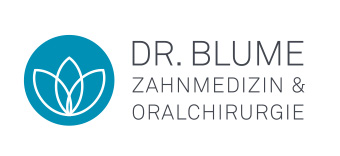Salivary Glands
The saliva produced in our salivary glands fulfils many important tasks. On the one hand, it liquefies the comminuted food to transport it to the oesophagus and facilitate swallowing. On the other hand, the enzymes contained in saliva contribute to the digestion of our ingested food. The antibodies present in our saliva serve to ward off pathogenic bacteria in the oral cavity. In addition, the minerals contained in saliva help to strengthen the enamel and thus strengthen the tooth structure against caries attacks.
A disease of the large salivary glands causes painful swelling under the tongue, on the lip, on the floor of the mouth or in front of the ear. This is usually caused by inflammation of the corresponding salivary glands or a disturbance of the salivary drainage due to so-called salivary stones. A salivary stone (sialolite) develops when the composition of the saliva changes, which leads to a clumping of the solid components and salts. As a rule, the symptoms of inflammation are intensified when food is ingested.
The majority of the salivary stones can easily be represented by a so-called mouth bottom uptake of the lower jaw. However, not all salivary stones are radiopaque, so that ultrasound, magnetic resonance imaging and X-ray contrast images may be necessary for a reliable diagnosis.
What therapy options are available?
In the case of a pure inflammation, drug treatment already leads to recovery, while salivary stones should be removed by a small oral surgical procedure. This treatment is usually carried out under local anaesthesia at your dental practice in Mainz, Germany (Dr. Maximilian Blume). In a few cases, if the glandular tissue is severely damaged or a tumour is the cause of the disease, the salivary gland must be completely removed.
We are happy to help you to make a thorough diagnosis and sustainable therapy for your oral health.
Contact
DR. BLUME
ZAHNMEDIZIN & ORALCHIRURGIE
Erthalstraße 1
55118 Mainz
T (06131) 67 81 81
F (06131) 67 81 83
E-Mail: info@zahnmedizin-blume.de
OPENING TIMES
| Mon | 8am - 1pm and 2pm - 6pm |
|---|---|
| Tue | 8am - 1pm and 2pm - 6pm |
| We | 8am-1pm |
| Thu | 8am - 1pm and 2pm - 6pm |
| Fri | 8am-1pm |
PHONE HOURS
| Mon | 8:30am-12pm and 3pm-5:30pm |
|---|---|
| Tue | 8:30-12 and 3pm-5:30pm |
| Wed | 8:30am-12pm |
| Thu | 8:30am-12pm and 3pm-5:30pm |
| Fri | 8:30am-12pm |
